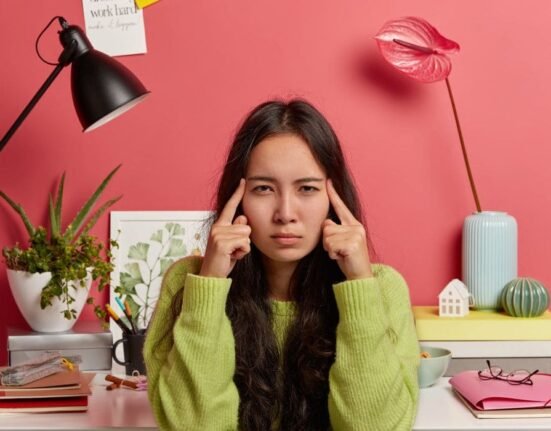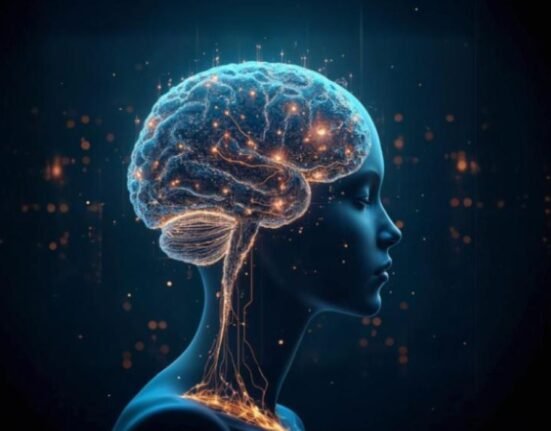Everyone has a basic understanding of the term depression. Sentences like “I had such a bad day today, I feel depressed” or “That movie is so sad, it makes me depressed” are very common to come by. But, it is more serious than our understanding of it as regular sadness. Clinicians define it as severe feelings of depression that persist for two or more weeks.
What is Depression?
Organizations such as the American Psychiatric Association and World Health Organization define depression as a mental disorder characterized by severe feelings of sadness, irritability, emptiness, and hopelessness which hinder a person’s everyday activities and loss of interest in activities that a person once enjoyed. Such feelings must persist for two or more weeks for a person to be diagnosed with a depressive disorder.
Depression is one of the most serious but at the same time most common disorders. According to the World Health Organization, about 3.8% of the population of the world, which amounts to as many as 280 million people, battle it. It is usually characterized by feelings of sadness, irritability, emptiness, and hopelessness which hinder a person’s everyday activities.
Depression can affect anyone of any age, even the most popular of celebrities such as Deepika Padukone and Kurt Cobain, the most creative of personalities such as Vincent Van Gogh and Sylvia Plath, or even a high school student, as depicted in the series ‘13 Reasons Why.
However, women are more prone to develop depressive disorders than men due to many problems, such as the wage gap and financial dependence. However, due to social stereotypes, men are less likely to report symptoms of depression and seek help for the same, thus, depression in men might go undiagnosed.
Studies have shown that persons belonging to the LGBTQIA+ community and those belonging to a poor socioeconomic background are at an increased risk of developing depressive disorders due to the neglect and abuse by society they face. People who are diagnosed with a substance use disorder are also more susceptible to it.
Symptoms
Although symptoms of depressive disorder differ according to the type, some common ones include anhedonia (Loss of interest or pleasure in activities one previously found enjoyable or rewarding), poor concentration, reduced self-esteem and feelings of worthlessness, psychomotor agitation (increased motor activity due to restlessness such as fidgeting and pacing) or retardation (unusual slowing down of physical routine activities such as brushing, eating), disrupted sleep (both insomnia and hypersomnia), disrupted appetite and changes in weight, low energy and fatigue, thoughts of self-harm and suicidal ideation.
Causes
Depression is known to result from a complex interplay of social, psychological, and biological factors. Some known factors that contribute to the development of a depressive disorder are listed below:
- Family Background: Depression is a heritable disorder, which means that if a person’s parents or grandparents have suffered from depression or another mood disorder, they are more likely to develop it.
- Brain chemistry: One theory of depression claims that it stems from low levels of the neurotransmitters serotonin and norepinephrine. The brain structure might also be related to depressive tendencies, some studies have indicated that depression might be caused by a less active frontal lobe, however, it is unclear if that happens before or after the onset of depression.
- Trauma: External stressors, childhood trauma from abuse, and other negative life changes, such as the loss of a loved one or unemployment and poverty, also contribute to depression.
- Physical Illnesses: Chronic illnesses and other medical conditions such as cancer, chronic pain, heart attack, Parkinson’s disease, and physical disabilities have been linked to the onset of depression. And in turn, it is known to further worsen these conditions.
- Hormonal changes: Hormonal changes in a woman’s body and brain, especially during menstruation, menopause, and after giving birth, are known to cause depression.
Types
The DSM-5 (Diagnostic and Statistical Manual of Mental Disorders) categorizes depression under mood disorders. There are several types, described below:
- Major Depression: Commonly referred to as MDD (Major Depressive Disorder), is the more severe form of depression in which a person’s depressive tendencies are all-consuming, and they find it hard to function and carry out even daily activities. A person diagnosed with MDD is unable to derive pleasure from activities they would otherwise enjoy. Sudden disruption of sleep schedule and appetite, rapid weight changes, extreme lack of self-worth, and constant suicidal thoughts are some of the symptoms associated with this disorder.
- Persistent Depressive Disorder: Formerly known as ‘dysthymia’, this is a milder, although chronic form of depression. The diagnosis of this disorder is carried out if the patient has suffered from low-intensity but long-term depressive symptoms, usually for at least two years.
- Bipolar Disorder: Bipolarity, hitherto known as manic-depressive disease, is characterized by cycles of mania (periods of high self-esteem, grandiose ideas, unusually high physical energy, increased seeking of pleasure and raised libido), and depression.
- Seasonal Affective Disorder (SAD): This specific kind of depression comes and goes with the seasons, usually emerging in winter. It has been speculated that it is caused due to the alterations that occur in the body’s natural rhythms such as the eyes’ sensitivity to light, which take place in such weather.
- Depression in Women: Two kinds of depressive disorders are exclusive to women. The first is PMDD (Premenstrual dysphoric disorder), a very severe form of PMS (Premenstrual Syndrome) in which hormonal changes cause drastic mood shifts that can disrupt daily life. The second is Perinatal Depression, more familiar as Postpartum Depression, which affects women who are pregnant or have recently given birth.
Treatments
A person suffering from depression might think the world is bleak and empty, and life is not worth living, but it is not untreatable and various forms of effective help to battle it are available. Some of these options are discussed below:
- Medication: There are a host of antidepressant medications available to help combat depression. These are usually known as SSRIs and SNRIs which both work on the principle of increasing the availability of neurotransmitters (serotonin and norepinephrine) in the brain. Medication for bipolar disorder differs from other kinds of depression, mood stabilizers are utilized for the same.
- Psychotherapy: Psychotherapy sessions are also beneficial in curing depression. Therapists trained in various kinds of therapy, such as Psychodynamic Therapy and Cognitive Behavioural Therapy, can help one overcome depressive tendencies even in cases of MDD or Persistent Depression.
- Light Therapy: Continual exposure to doses of white light is also known to regulate mood and improve depressive symptoms. It is particularly helpful in cases of Seasonal Affective Disorder.
- Alternative Therapies and Remedies: Meditation helps reduce the effect that stress and anxiety have on a person by calming the brain. Acupuncture treatment is also known to assist in alleviating symptoms of depression in combination with medical treatment. Other lifestyle practices such as consistent exercise, avoiding alcohol, maintaining a healthy diet and sleep schedule and intake of vitamin and other nutrient supplements help with both preventing and reducing depression.
Conclusion
One of the most important factors in a person’s journey of battling depression is the presence of a strong support system. Family and peers, as well as society at large, must work on creating an environment free of stigma around depression so that a person suffering from it does not hesitate to seek help. Mental health practitioners must also create awareness about it. The key aspect in overcoming the challenge of depression is to find the right combination of treatments that work for you.
Read more article from Psychologs
- Mental illnesses
- Therapy














Leave feedback about this